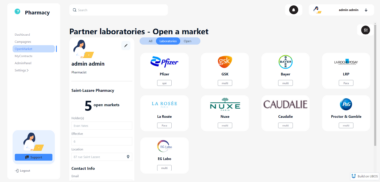What is the Webflow MCP Server?
The Webflow MCP Server is a tool that enables AI models to interact with Webflow’s APIs, facilitating seamless integration and automation of web development tasks.
How do I set up the Webflow MCP Server?
To set up the Webflow MCP Server, you need Node.js, the Claude Desktop App, a Webflow account, and a Webflow API Token. Follow the setup instructions provided to configure your environment.
What tools does the Webflow MCP Server provide?
The server provides tools like get_sites and get_site, which allow you to retrieve detailed information about your Webflow sites, such as site IDs, workspace IDs, and more.
How does the Webflow MCP Server ensure security?
The server emphasizes security by encouraging users to keep API tokens secure, use environment variables for sensitive data, and regularly rotate tokens to prevent unauthorized access.
What are the prerequisites for using the Webflow MCP Server?
You need Node.js (v16 or higher), the Claude Desktop App, a Webflow account, and a valid Webflow API Token to use the server effectively.
Webflow MCP Server
Project Details
- kapilduraphe/webflow-mcp-server
- MIT License
- Last Updated: 4/15/2025
Categories
Recomended MCP Servers
Augment LLMs with Todoist features


A Model Context Protocol server for Scrapybara

A Model Context Protocol (MCP) server that provides call graph analysis capabilities to LLMs through the nuanced library

A Model Context Protocol (MCP) server implementation connecting Claude Desktop with DeepSeek's language models (R1/V3)

MCP Memory Server with PostgreSQL and pgvector for long-term memory capabilities
A Model Context Protocol (MCP) server that enables LLMs to interact with iOS simulators through natural language commands.
MCP server that provides doc forge capabilities
MCP for Proxmox integration in Cline

 From vibe coding to vibe deployment. UBOS MCP turns ideas into infra with one message.
From vibe coding to vibe deployment. UBOS MCP turns ideas into infra with one message.






